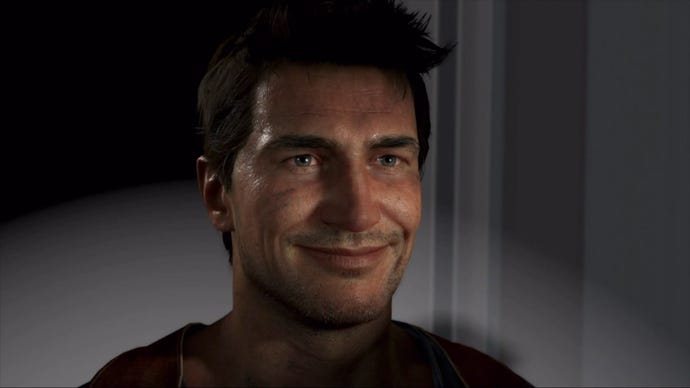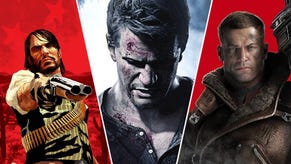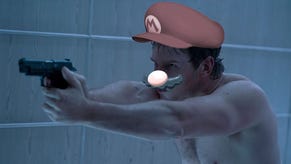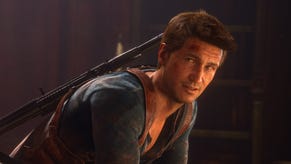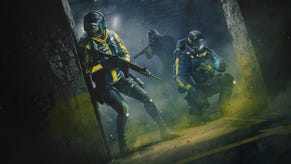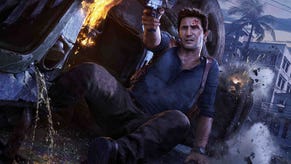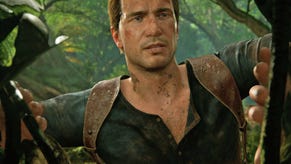Ludonarrative dissonance isn't just a games problem, says Jonathan Blow
Also: jargon is dreadful.
The Witness and Braid creator Jonathan Blow has made some interesting comments on ludonarrative dissonance, a favourite talking point of games criticism.
If you're not au fait with the term, ludonarrative dissonance is the weird disconnect between what's happening in a game's story or themes, and what's happening in its gameplay - like when a character's death is framed as a huge emotional moment in between bouts of the player killing off hundreds of other characters. It's something the Uncharted series is frequently called out for, and Naughty Dog made a reference to it with a cheeky trophy in Uncharted 4: A Thief's End.
Speaking to Time, Blow objected to the term itself, which he seems to suggest is unnecessary jargon, and went on to say it's a problem for many forms of media beyond video games.
"You can more broadly look at any work of art or even things that aren’t art and see when they’re being hypocritical or self-defeating or inconsistent," Blow said. "These are much easier words for people to understand, that mean the same thing and that are not peculiar to games.
"You can have a movie that’s supposedly about love and family or something, but the screen time the movie devotes to those subjects is 15 minutes, and the remaining hour and 20 minutes is the guy being an action hero kicking guys off the top of trucks driving down the freeway or something. And it’s like, ‘Okay, well, this movie isn’t really about love and family, because those other guys have families and stuff, right?’
"And the movie in fact wants to dehumanize those guys so it’s okay to kick them off the tops of moving trucks. And the business model of the movie is to have this kind of action excitement, and that’s why you’re in the theater. So if the family part is just the thin veneer to justify the action scenes, then it’s really a deeply hypocritical movie in some way, or at least parts of it are."
Blow said games do exactly the same thing, it's just that the prevalence of violence in video games makes it more extreme. He said Uncharted is just one example, and not the worst one, name-dropping Red Dead Redemption as another.
The designer said it's "not an easy problem to solve", and throughout the interview he repeatedly mentioned he's not trying to pick on Uncharted, acknowledging the commercial realities of mainstream video game design. He did then provide some absolutely fire quotes on the state of storytelling in video games, though.
"When people say these games have good stories, I think they’re only comparing them to other games," he said.
"If you compare them to good movies or good novels, the stories are terrible. Or at best, they’re like a story from an episodic TV show where there’s some villain and someone trying to defeat the villain. It’s very simplistic.
"Even all these games that win awards. Where games are in terms of storytelling . . . it’s not Moby Dick, it’s not Finnegan’s Wake, it’s not Pride and Prejudice. It’s Airwolf, or Knight Rider. Uncharted is probably on the level of some of the better TV shows, but it’s not good. It doesn’t do justice to the millennia of storytelling craft."
Ludonarrative dissonance is "only part of" the reason for this quality discrepancy, Blow said, but it is a problem.
"I don’t think it helps to thumb your nose at it as a developer, because it prevents you from getting to a more sublime place," he said, presumably referring to the Uncharted 4 trophy.
"Making a joke about a problem that’s true doesn’t make the problem go away. And so the ludonarrative dissonance achievement strikes me as the same thing. You can make the joke, and ha-ha, it’s a little bit funny, but it’s not really funny because the problem is there. Saying the name of the problem doesn’t banish it."
I've edited these quotes for length and pulled them right out of their context to highlight these specific points of interest. It's really worthwhile reading the full interview on Time to get a full sense of the discussion.
